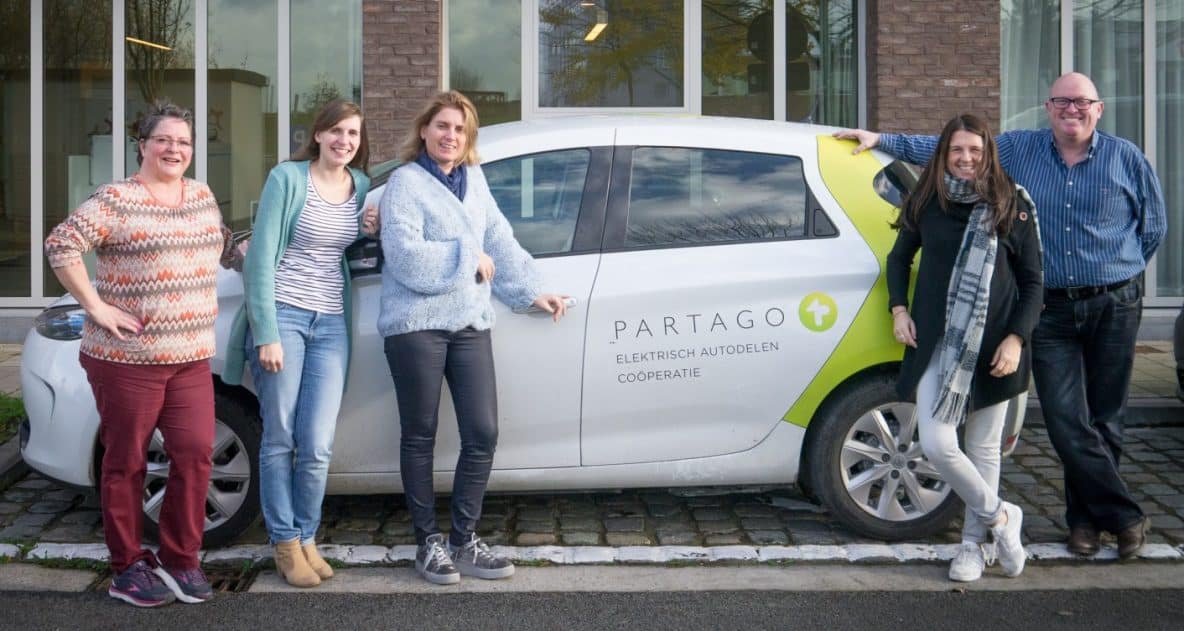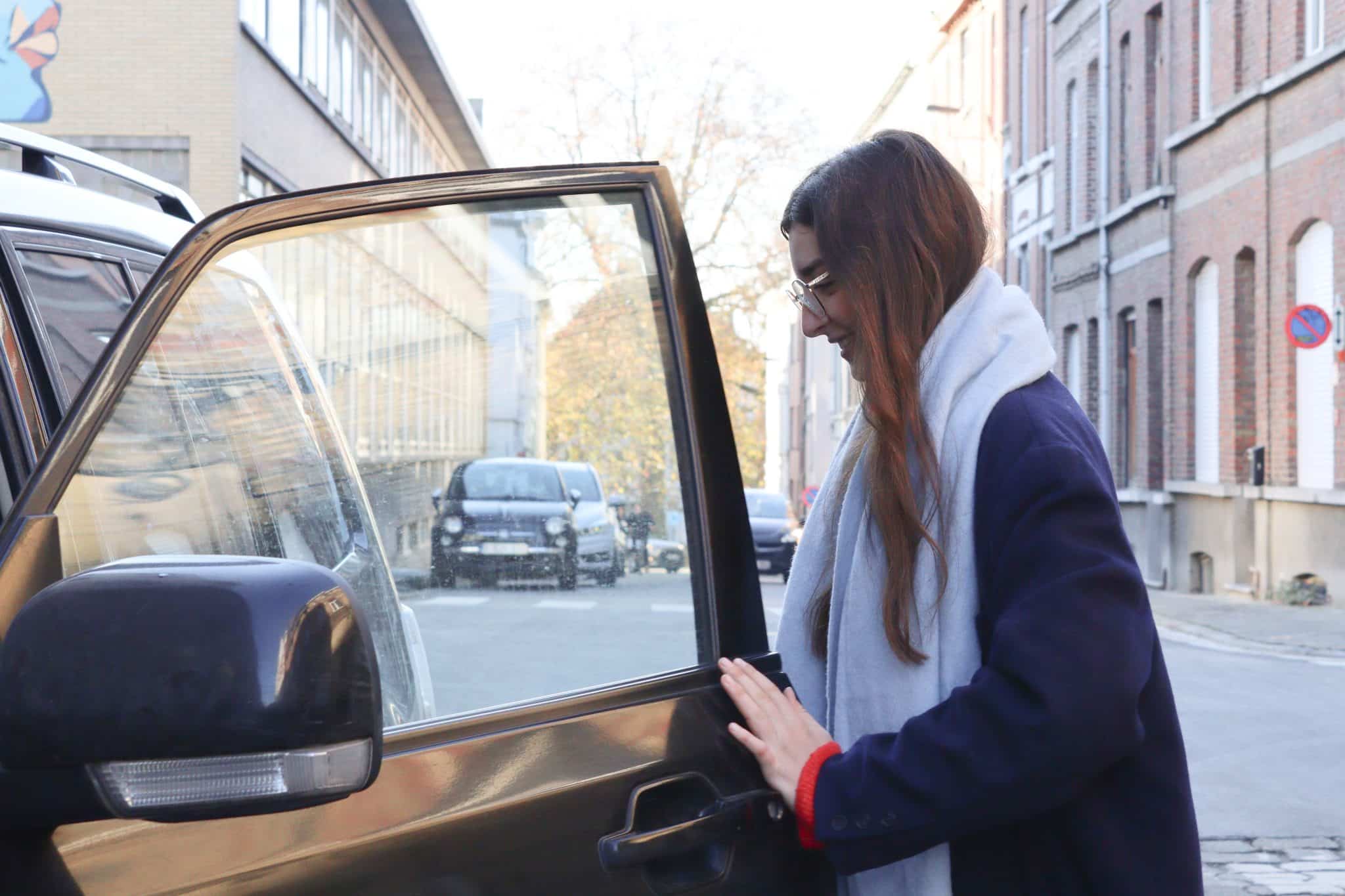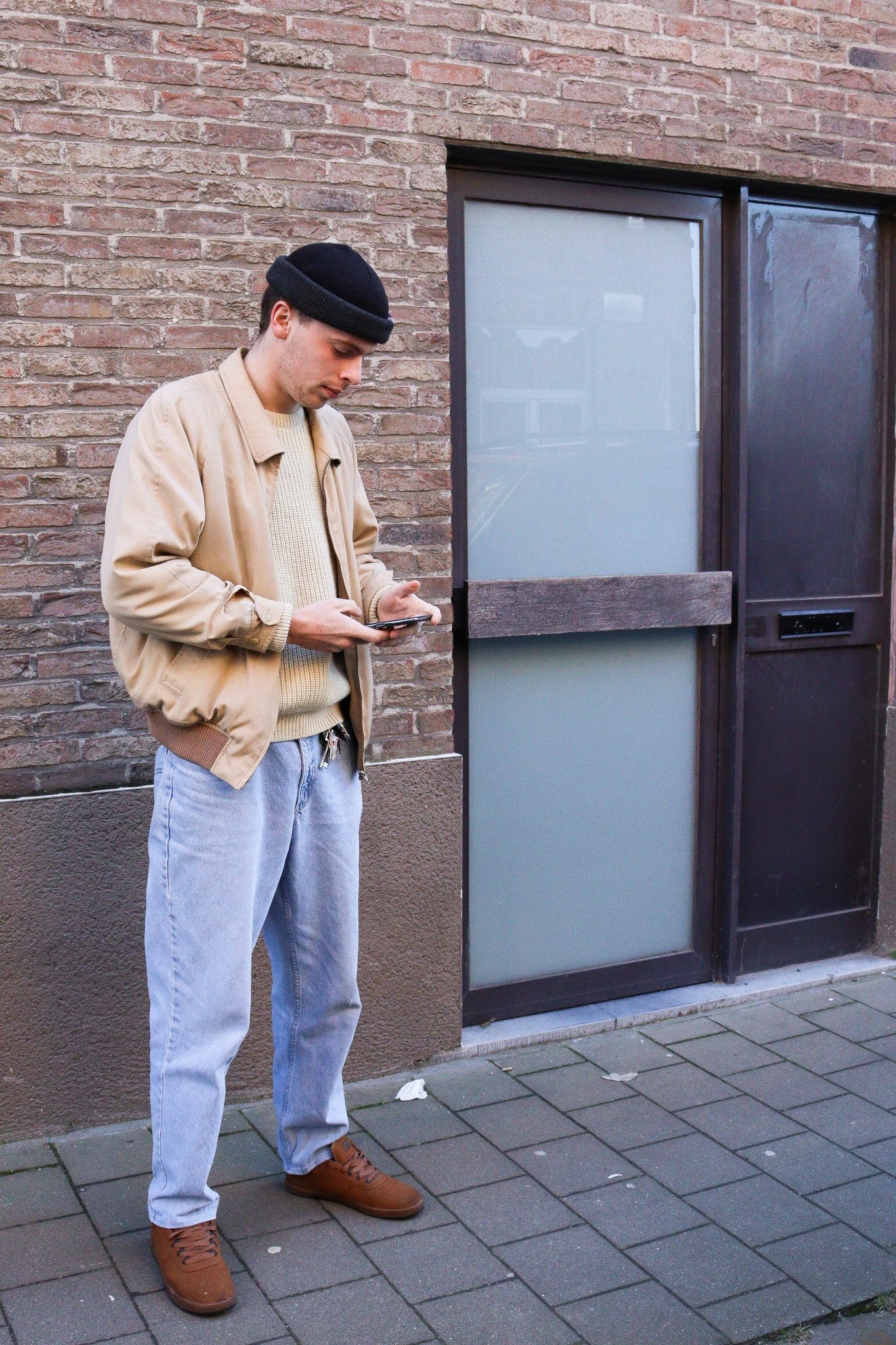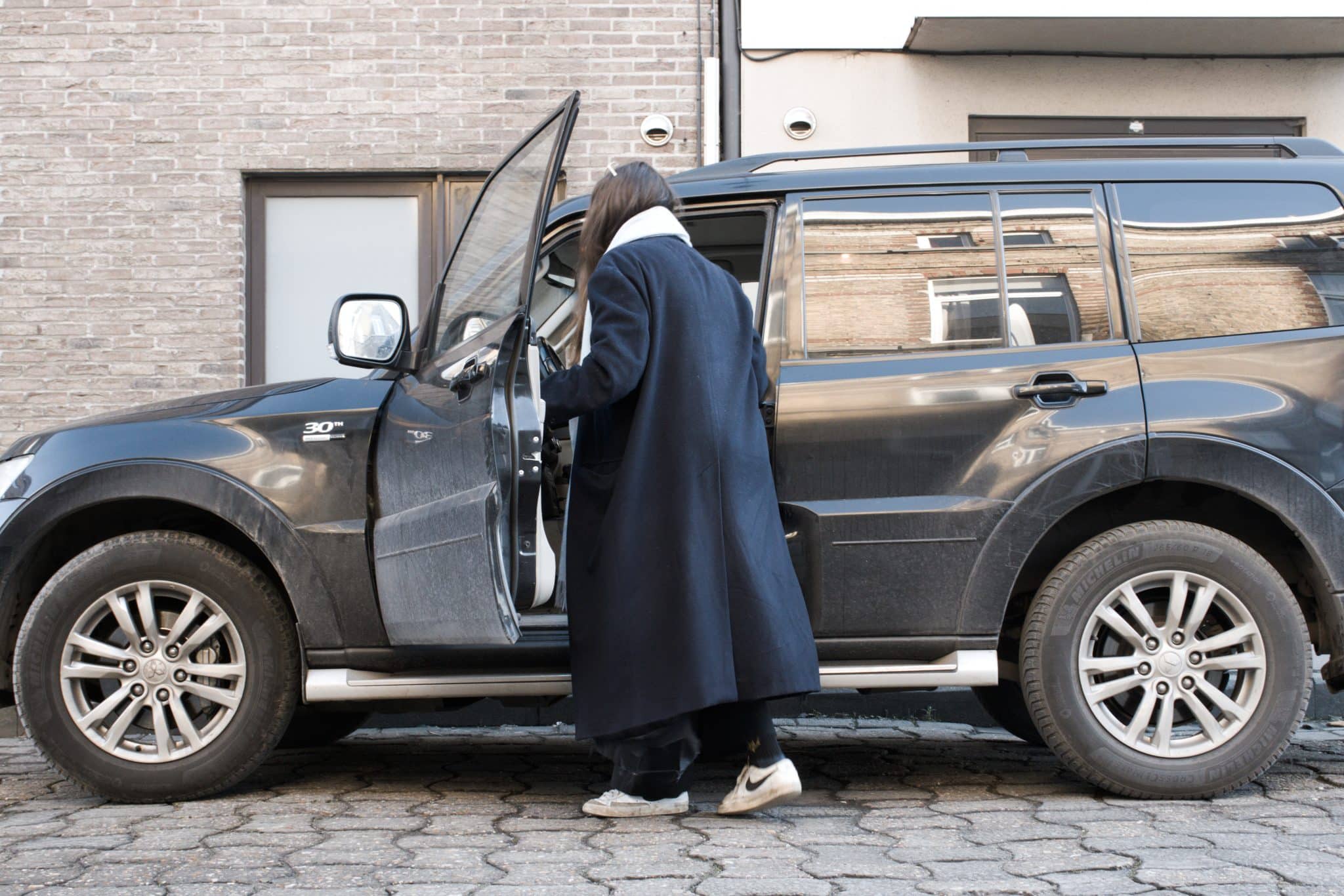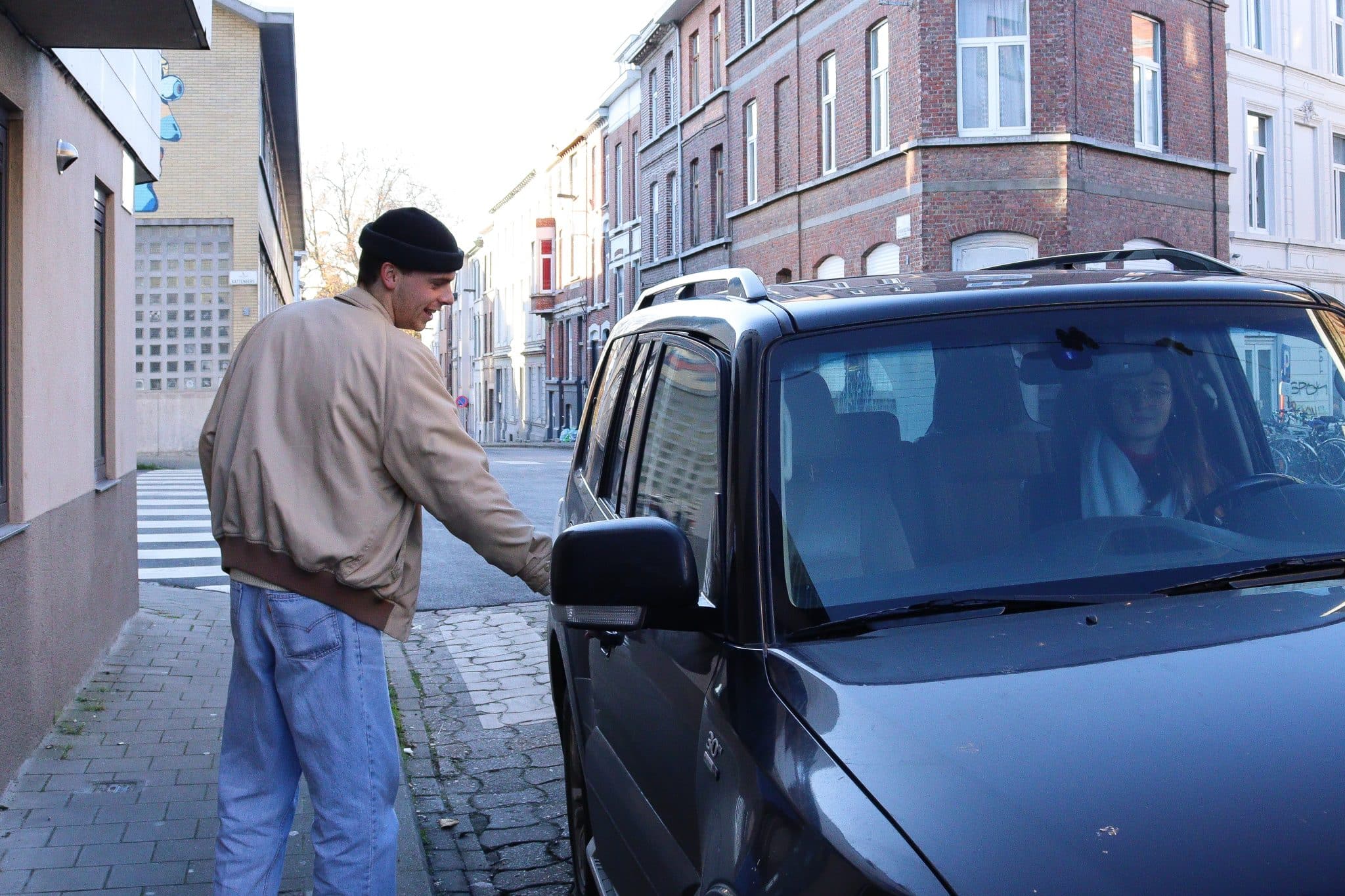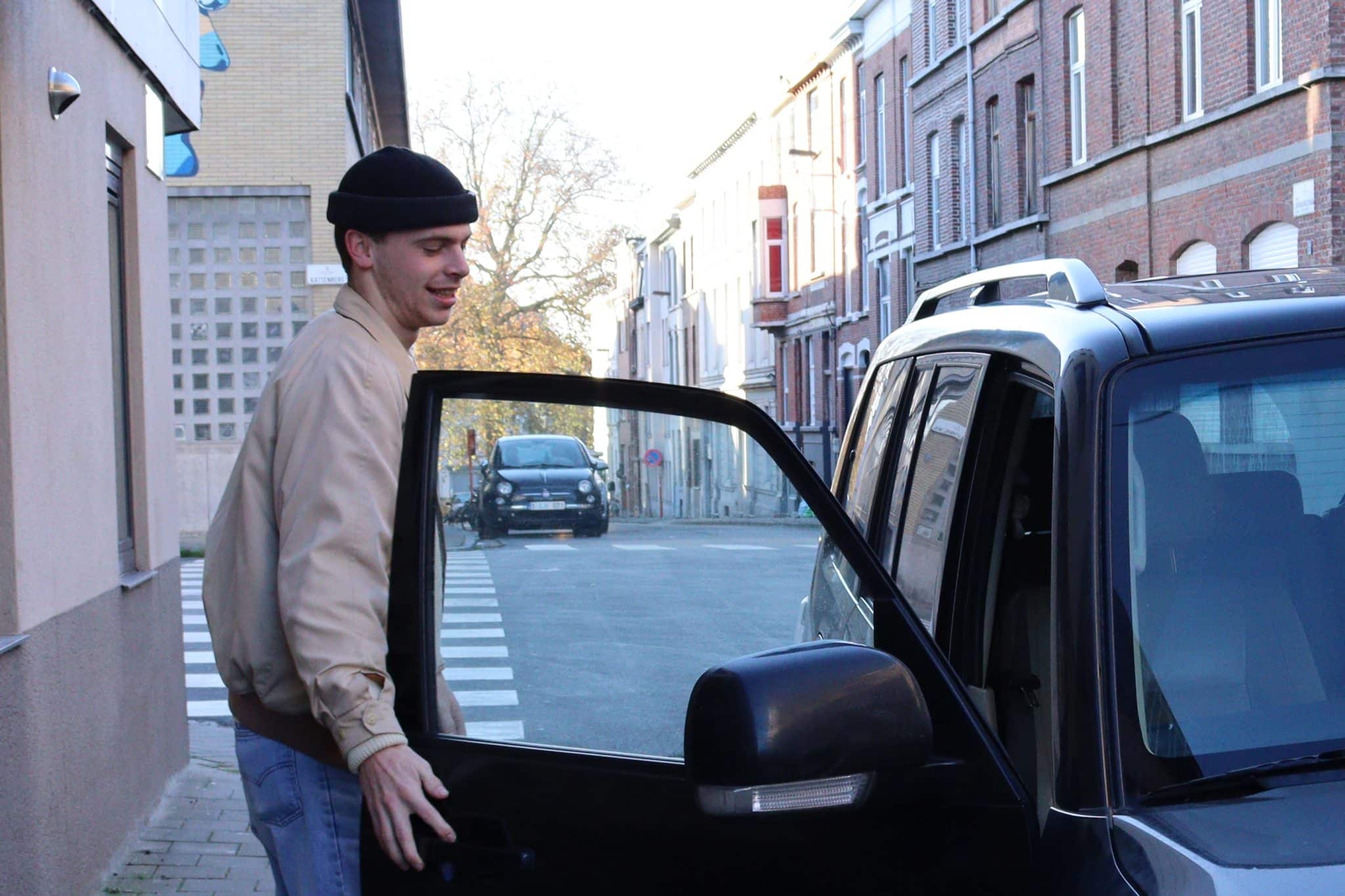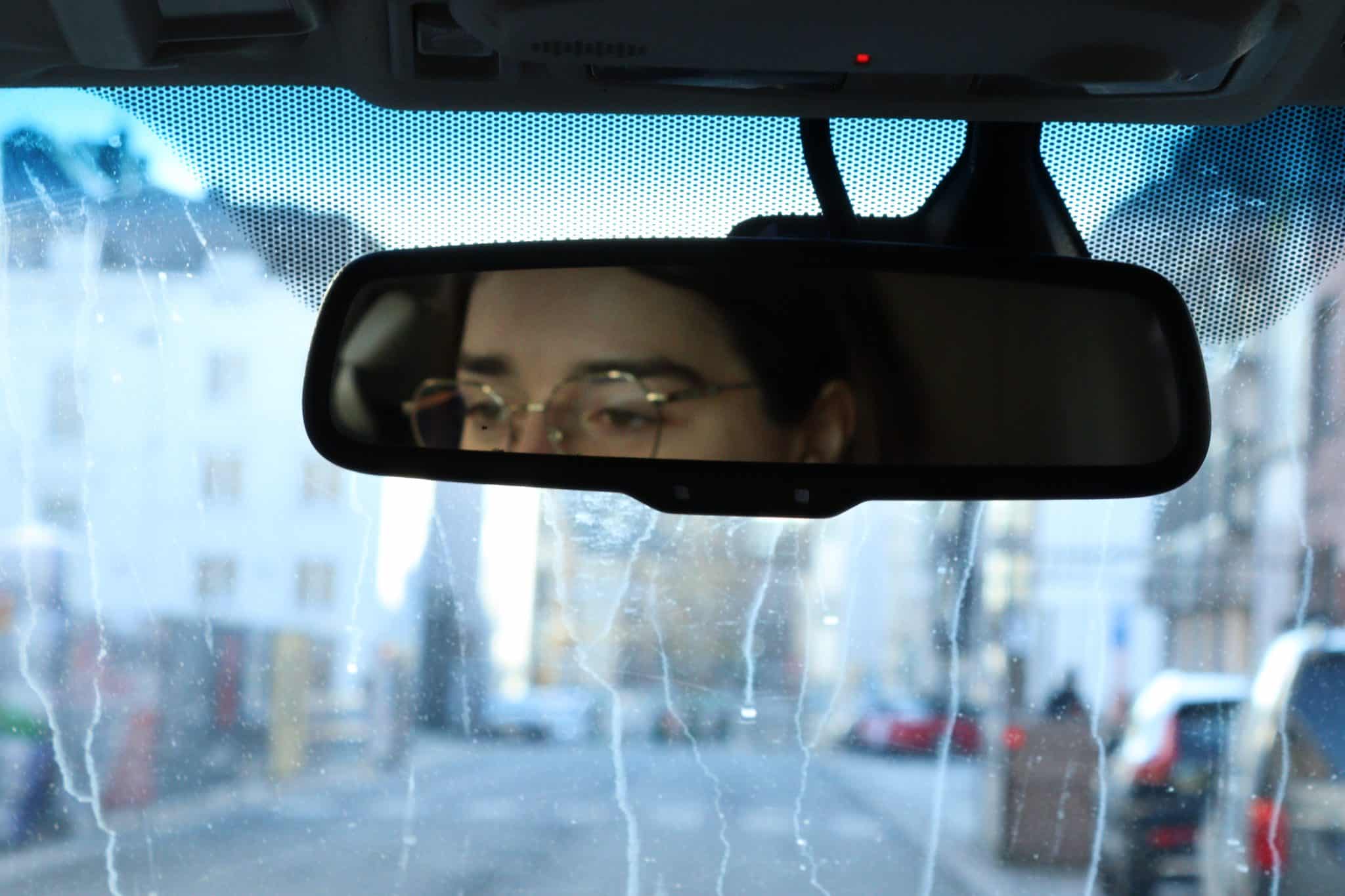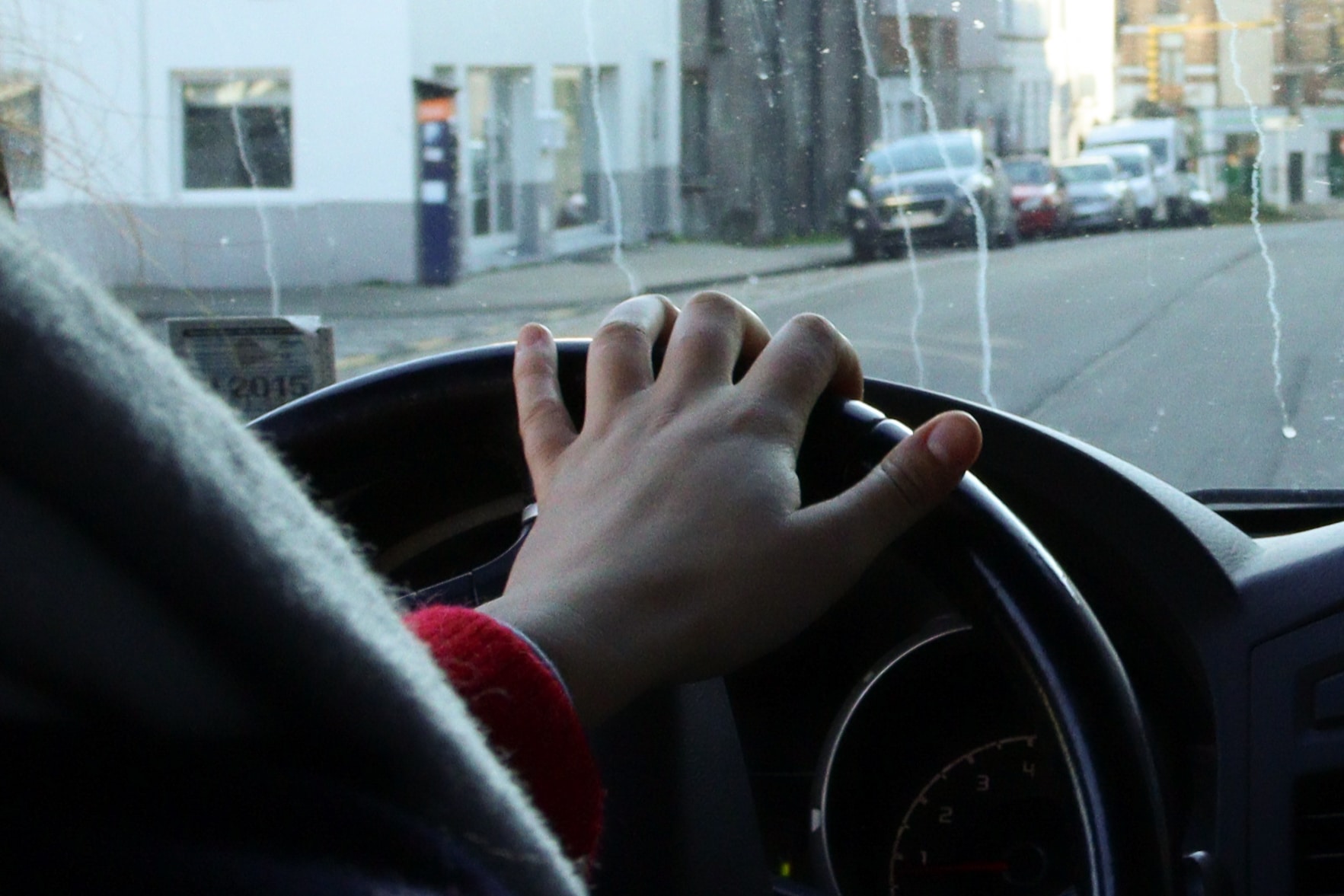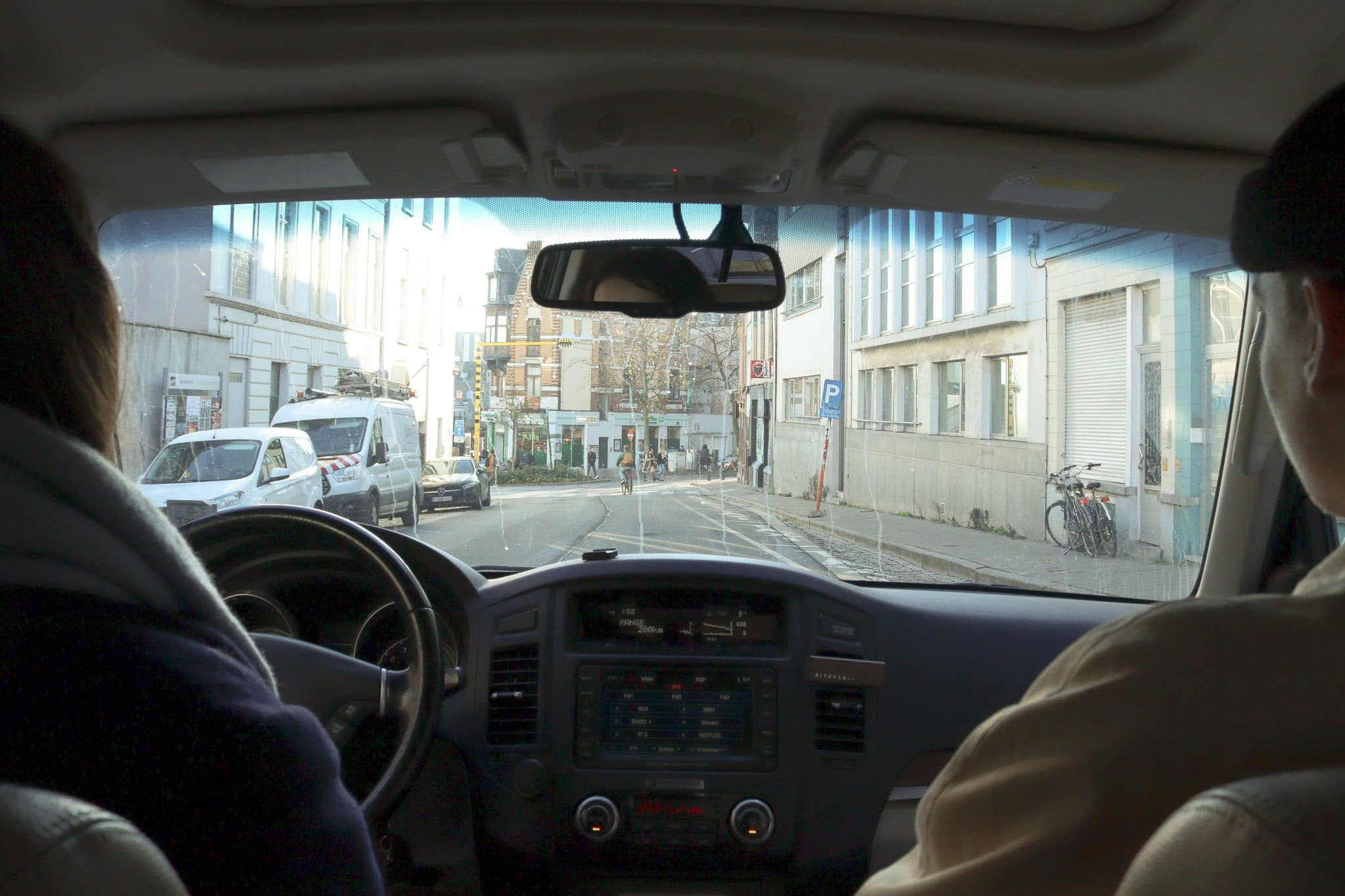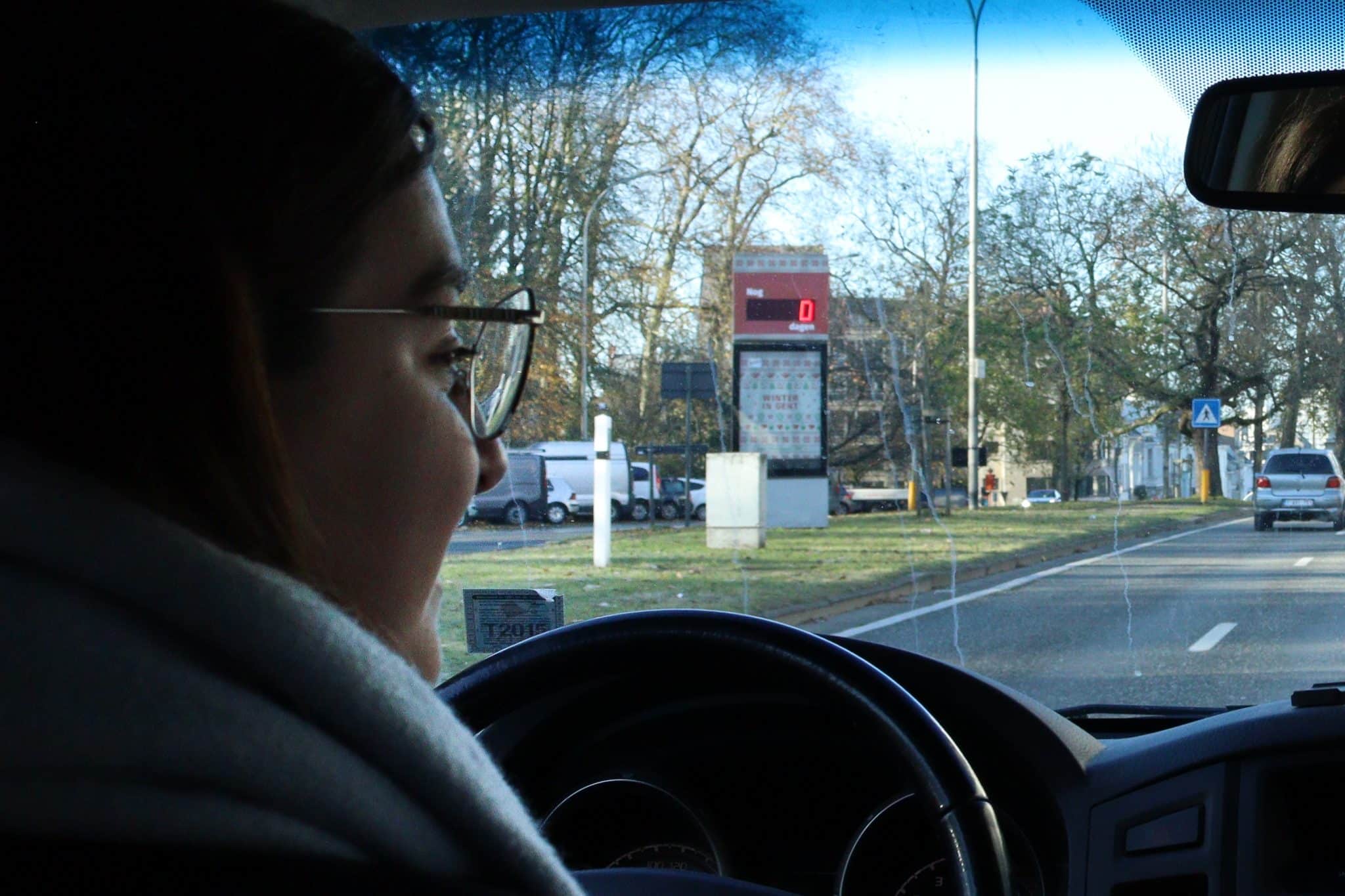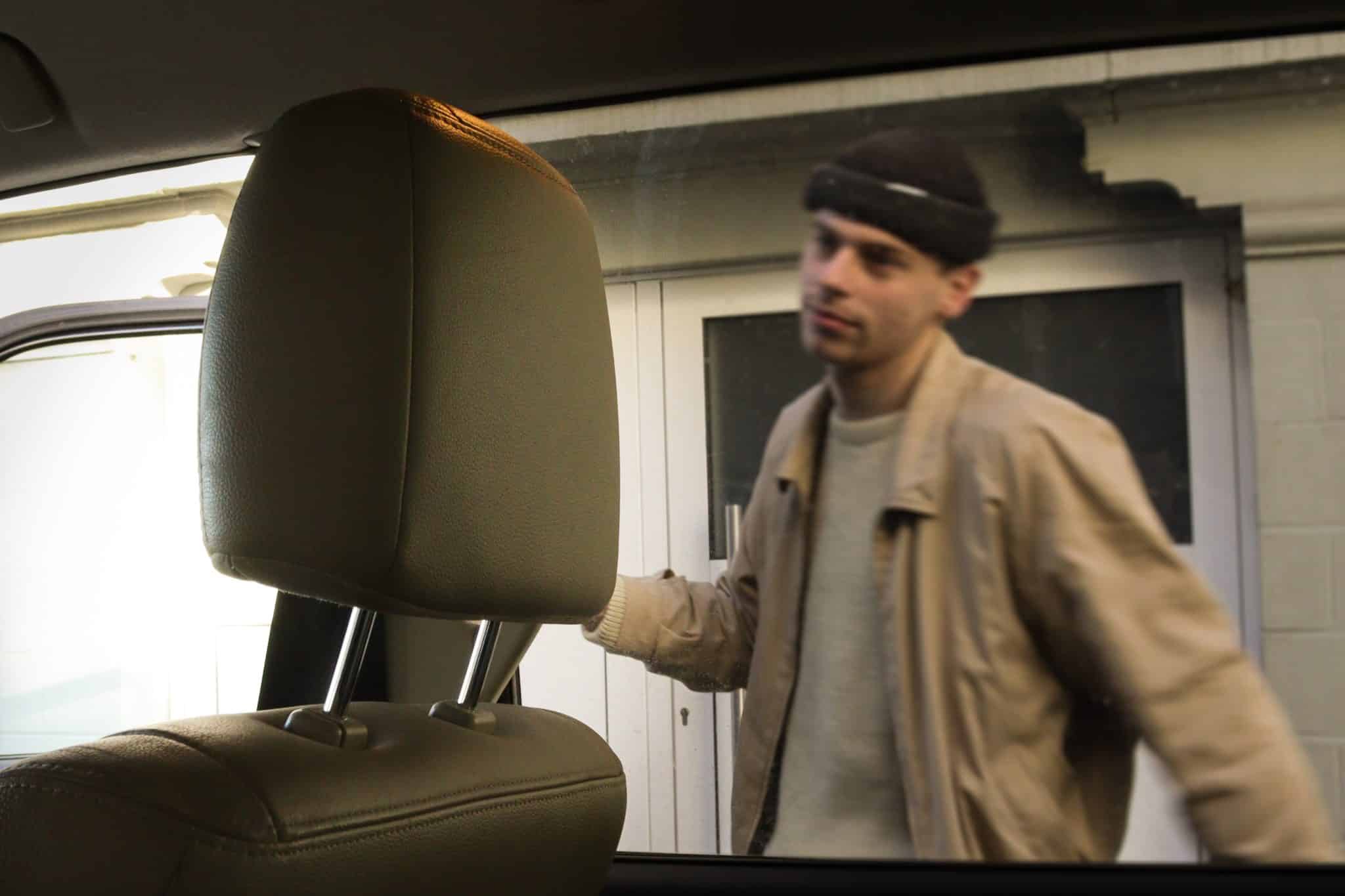We have done a lot of research on the topic of sharing, and our group of four concluded that carpooling is a good and often-used way to be conscious about the environment and climate.
Partago, a car-sharing platform
When it comes to new climate-friendly behaviour, perhaps nothing is as visible as the concept of car sharing. Jonas Sorgeloos sees only advantages and has been an active user for over four years. Sorgeloos is already a second-generation user of the car-sharing company Partago.
Partago is a cooperative company with an explicit focus on the environment. A clear example is that all their cars are hundred percent electric. People using the service invest in the company and thus become co-owner of the cars they use. By doing so, they also invest in a transition away from fossil fuel vehicles.
When someone buys a share of the company, they only need to download the Partago app on their phone. From then on, arranging for a car is a straightforward process. When the user reserves a car, someone from the company will drop it off nearby and share the exact location.
In June 2022, the European Parliament followed the European Commission’s proposal to phase out all new fossil fuel cars by 2035. They see this as a major step in becoming climate neutral by 2050, as road transport and traffic emissions account for one-fifth of all Europe’s CO₂ emissions.
For Sorgeloos, the climate is only one of the multiple reasons for using the service. He also thinks that car sharing is a budget-friendly option for private transport for young families. We met with Sorgeloos to discuss his experience with Partago and car sharing in general.
A carpooling podcast
Carpoolers ride together during regular trips, such as commuting. You can alternate who is at the wheel. Or, as a passenger, you can agree on a fee with the driver. If your employer organizes carpooling (commuting), you will receive a tax benefit and help to reduce CO2 emissions. Above all, driving with company is much more fun and enjoyable than having to drive alone.
Due to the high fuel prices, carpooling has increased sharply in recent months. The number of kilometres travelled has more than doubled compared to 2021 and is 38% higher than in the first eight months of 2019. The share of kilometres travelled by people who carpool has increased from almost 7% before the pandemic to 11% in 2022.
This evolution is evident from the latest mobility barometer of Vias institute. The Vias institute (formerly BRSI) is a Belgian knowledge centre that aims to improve road safety, mobility, and social safety.
It is also becoming easier to organize carpooling, given the increase in the number of carpool parking spaces along the main roads. Many online platforms make it easier and easier to facilitate carpooling between people who do not know each other.
Céleste Vermeersch, a 21-year-old college graduate, shares her arguments for carpooling, because she wants more consideration for the environment to combat global warming. She wants to do her part and convince more people to opt for carpooling instead of buying a car.
A day in Lynn’s car
Meindert and Lynn have been carpooling together to the university in Ghent since this year. Sometimes several people ride along too. Because of a poor train connection between their hometown and the university, which makes commuting impossible, they have no other choice but to take the car. With rising fuel prices, carpooling is a good alternative to cut costs. In addition, you have a pleasant travelling companion and do your bit for the environment. Also, you don’t have to drive every day and can alternate with the other passengers. It is quite a hassle, though, with the different timetables of all passengers. But it’s well worth it when you consider how much you save. That can add up to 1,000 euros per person if there are four of you in the car. There would also be less traffic if everyone left for school or work with four in the car instead of alone. Then there would be 70 percent fewer cars during rush hour.
Article by Eline Cornelis, Jana Vermeulen, Fien Borgions, and Stan Deseure
[jetpack-related-posts]
